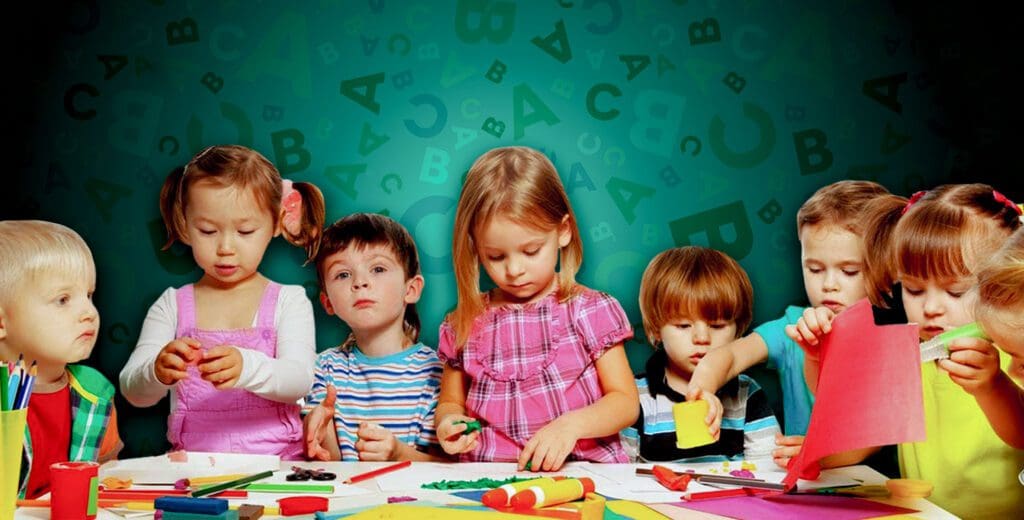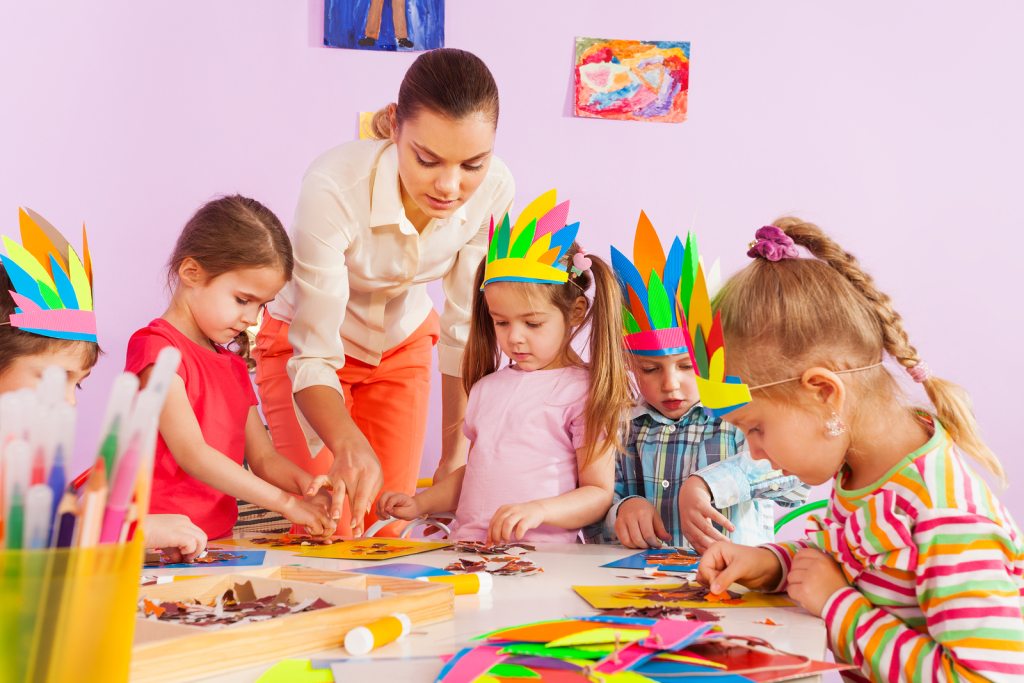Strong Foundation: Importance of Early Childhood Learning
Early childhood learning is a critical component of a child’s development. During the first few years of life, a child’s brain is rapidly developing, and the experiences they have during this time can have a significant impact on their future success. As a parent or caregiver, you play an essential role in providing a stimulating and supportive environment that promotes your child’s learning and development.
Research has shown that high-quality early childhood education can have long-lasting benefits for children, including improved academic performance, higher graduation rates, and increased earning potential later in life. However, not all early childhood programs are created equal, and it’s essential to do your research to find the best options for your child. Whether you’re considering enrolling your child in a preschool program, looking for resources to use at home, or just interested in learning more about early childhood learning, there are many resources available to help you make informed decisions.
The Importance of Early Childhood Learning
Early childhood learning is crucial for a child’s overall development. During the early years, children’s brains rapidly develop, and they constantly learn from their environment. During this time, children develop the foundation for their future learning and development.
Brain Development
The first few years of a child’s life are critical for brain development. The brain grows at an incredible pace during this time, and early experiences can have a lasting impact on brain development. Early childhood learning experiences can help build brain connections that are essential for learning, memory, and problem-solving skills.
Social and Emotional Development
Early childhood learning also plays a crucial role in social and emotional development. Children who receive quality early childhood education are more likely to have positive social interactions, better communication skills, and a stronger sense of self. They learn how to express their emotions and develop empathy for others.
Cognitive Development
Early childhood learning is essential for cognitive development, which includes language, literacy, and numeracy skills. Children who receive quality early childhood education are more likely to develop strong language and communication skills essential for success in school and life. They also develop early math skills, which are important for future success in STEM fields.
In conclusion, early childhood learning is essential for a child’s overall development. It helps build a strong foundation for future learning and development, including brain, social, emotional, and cognitive development. By providing quality early childhood education, we can help children reach their full potential and set them up for success in life.
Factors Affecting Early Childhood Learning
As a parent or caregiver, you play a crucial role in your child’s early learning and development. Several factors can affect your child’s learning abilities and outcomes. Here are some factors that can influence your child’s early learning:
Family Environment
Your child’s family environment can significantly impact their early learning. A stable and supportive home environment can foster your child’s cognitive, social, and emotional development. On the other hand, a stressful or chaotic home environment can negatively affect your child’s learning abilities. Some factors that can impact your child’s family environment include:
- Parental education
- Family income
- The number of parents in the home
- Stability of home life
- Stress levels and exposure to stress
Access to Education
Access to education is another crucial factor that can impact your child’s early learning. Early childhood education programs, such as preschool or daycare, can provide your child with a structured learning environment that fosters their cognitive, social, and emotional development. Some factors that can impact your child’s access to education include:
- Quality of childcare
- Going to preschool
- Highly educated teachers
- Smaller classes
- Lower child-staff ratios
Nutrition and Health
Nutrition and health are essential factors that can impact your child’s early learning. Proper nutrition and access to healthcare can promote your child’s physical and mental well-being, which can positively influence their learning abilities. Some factors that can impact your child’s nutrition and health include:
- Access to healthy food
- Exposure to environmental toxins
- Access to healthcare
- Physical activity levels
In conclusion, several factors can impact your child’s early learning and development. As a parent or caregiver, you can help create a supportive and nurturing environment that promotes your child’s learning abilities. Addressing factors such as family environment, access to education, nutrition, and health can help set your child up for success in their early years.

Effective Early Childhood Learning Strategies
As a parent or caregiver, you want to ensure your child receives the best education possible. Effective early childhood learning strategies can set the foundation for lifelong learning. Here are some strategies that can help your child succeed.
Play-Based Learning
Play-based learning is a fun and effective way for young children to learn. It allows children to explore their environment and learn through hands-on experiences. Play-based learning can help children develop social, emotional, cognitive, and physical skills.
Individualized Instruction
Every child is unique and has their own learning style. Individualized instruction can help cater to your child’s specific needs and interests. It can help your child learn at their own pace and achieve their full potential. Teachers can use various methods to provide individualized instruction, such as small group instruction, one-on-one instruction, and adaptive technology.
Parental Involvement
Parents play a crucial role in their child’s education. By being involved in your child’s learning, you can help reinforce what they are learning in the classroom. You can also help your child develop a love for learning by providing a supportive and encouraging environment. Some ways to be involved include:
- Reading to your child
- Helping with homework
- Attending parent-teacher conferences
- Volunteering at your child’s school
- Encouraging your child to ask questions and explore their interests
In conclusion, effective early childhood learning strategies can help set the foundation for lifelong learning. Play-based learning, individualized instruction, and parental involvement are just a few strategies that can help your child succeed. By working together, we can help ensure every child receives the best education possible.
Challenges in Early Childhood Learning
Early childhood learning is a critical stage of development that sets the foundation for lifelong learning. However, it is not without its challenges. This section will discuss some of the most significant challenges facing early childhood learning today.
Inadequate Funding
One of the most significant challenges in early childhood learning is inadequate funding. Many early childhood programs struggle to secure adequate funding to provide quality education and resources to young children. This lack of funding can lead to understaffed classrooms, outdated materials, and limited access to technology.
Teacher Shortage
Another significant challenge in early childhood learning is the shortage of qualified teachers. The demand for early childhood educators is high, but the supply is low. This shortage can lead to larger class sizes, lower-quality education, and a lack of individualized attention for young children.
Cultural and Linguistic Diversity
Cultural and linguistic diversity is another challenge facing early childhood learning. Young children come from a wide range of cultural and linguistic backgrounds, and it is essential to provide a learning environment that is inclusive and supportive of all children. This can be difficult when teachers and staff lack the necessary training and resources to support diverse learners.
To address these challenges, investing in early childhood education, providing adequate funding, and supporting educators with ongoing training and resources is crucial. By doing so, we can ensure that all young children have access to quality early childhood education that sets them up for lifelong success.
FAQ
What is learning in early childhood?
Learning in early childhood refers to the acquisition of knowledge, skills, and attitudes that take place during the first few years of life. It is a crucial stage in a child’s development, as it lays the foundation for future learning and growth. Early childhood learning involves a range of activities, including playing, exploring, and interacting with others.
What are the 5 areas of learning in early childhood?
The 5 areas of learning in early childhood are:
- Physical development includes developing fine and gross motor skills, coordination, and control.
- Social and emotional development involves learning to interact with others, managing emotions, and developing a sense of self.
- Language development includes learning to communicate through speech, listening, and understanding.
- Cognitive development involves developing thinking skills like memory, problem-solving, and creativity.
- Creative development includes developing skills in art, music, and imaginative play.
What age is early childhood?
Early childhood typically refers to the period from birth to age 8. Children experience rapid physical, cognitive, and social-emotional growth and development during this time.
What are the 7 stages of child development?
The 7 stages of child development are:
- Infancy: Birth to 18 months
- Early childhood: 18 months to 3 years
- Preschool: 3 to 5 years
- Middle childhood: 6 to 8 years
- Late childhood: 9 to 11 years
- Adolescence: 12 to 18 years
- Adulthood: 18 years and beyond
Each stage is characterized by different developmental milestones and challenges, and it is important for caregivers and educators to understand these stages to support children’s growth and development.







